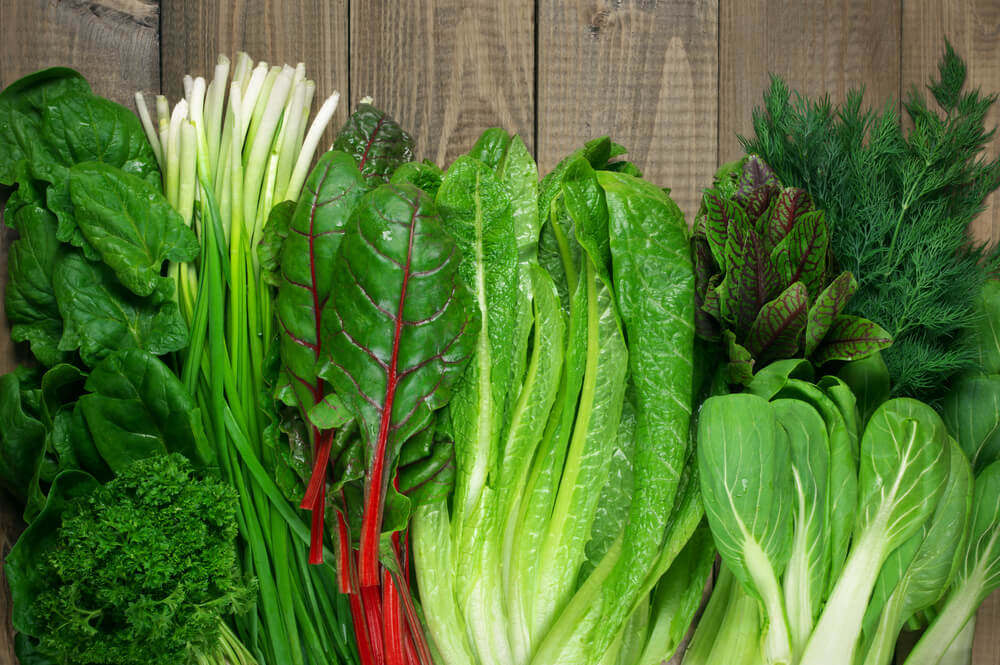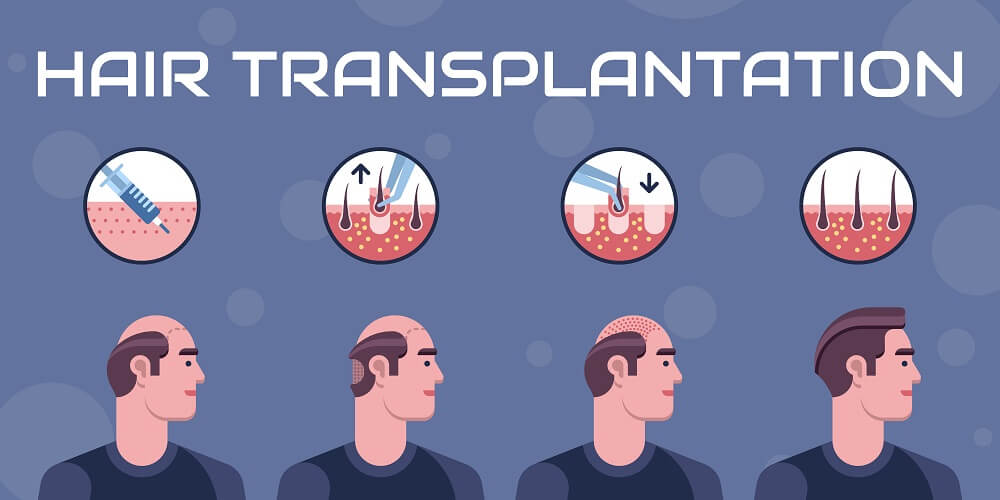Hair Loss Diet: Promote Healthy Hair with these Foods!

Have you thought about taking a closer look at what you are eating and how it affects your hair health? In many cases, a poor diet can cause hair loss, so what you put into your body has great significance when it comes to hair health. Even small changes in your current diet help in improving hair health; in the following article, we will reveal which foods you can eat to promote healthy hair growth, and possibly fight hair loss.
The Connection Between Diet and Hair Loss
Nutrition plays a vital role in the health of our hair. Some meals in your diet could hinder your hair follicles from producing more hair, the same way specific meals promote fuller hair.
Diet is the number one factor people overlook when it comes to hair care. Several nutritional deficiencies result in thinning, hair breakage, and receding hairlines. When you eat the right meals and introduce suitable supplements to your diet, you'd be amazed how fast your hair may get fuller, longer, and generally healthier.
According to experts and board-certified dermatologists, men and women must ensure a healthy and varied diet consisting of antioxidants, iron, and biotin for healthy hair.
Before we go on to list the top specific foods to include in your diet, a balanced diet containing all essential and nonessential nutrients will generally improve the look and feel of your hair.

Hair Loss Diet: Top 10 Healthy Food for Healthier Hair
Here are the top foods you can add to your diet to curb hair loss:
Eggs
Eggs contain high-quality proteins, vitamins, minerals, biotin, and good fats. All of these are essential food groups essential for hair growth.
A deficiency of proteins in a diet encourages hair loss and inhibits the hair follicles from producing more strands.
At the same time, biotin is essential for producing keratin, commonly known as hair and nail proteins. Scientists say that eating more biotin-rich foods improves hair growth.
You are unlikely to consume excess eggs, nor can you receive an excess supply of the nutrients present in eggs as long as you continue with a balanced diet.
Fatty Fish
Some species of fish are a great source of omega-3 fatty acids and a few essential nutrients. Hair experts believe that these fish promote hair growth and curb hair loss.
The species of fish to buy to add essential fatty acids to your diet include Salmon, Mackerel, Tuna, and Herring. They also contain vitamins and minerals like selenium and vitamin B
Meat
Meat is a common part of many people's diets and a significant source of protein and other nutrients that encourage hair repairs and growth.
One hundred grams of sirloin steak provides up to 29 grams of protein. These proteins improve the strength of hair follicles by delivering more oxygen.
It is worth noting that processed red meat and overconsumption of meat can sometimes lead to multiple cardiovascular diseases. So beware!

Sweet potatoes
Sweet potatoes are a source of vitamins, especially beta-carotene (Vitamin A), which helps with hair growth.
Vitamin A deficiency will lead to a reduction in sebum production. Sebum is another beneficial compound that keeps hair healthy. Eating a medium-sized
sweet potato daily provides over 150% of your daily Vitamin A needs.
You can avoid using supplements when you eat enough sweet potatoes and other vitamin-A-rich food.
Low-Fat Dairy Products
Consuming enough low-fat dairy products like yogurt and skimmed milk ensures the body has a constant supply of calcium, when, and casein. These three nutrients encourage hair growth.
Remember to add a cup of yogurt or cottage cheese to your list when you next visit the market. You could stir these with flaxseed or walnuts for the best hair results.
Oats
Oats include a lot of fiber, which boosts heart and intestinal health, but they also have high levels of other vital nutrients like zinc, iron, and omega-6 fatty acids. These are collectively known as polyunsaturated fatty acids (PUFAs).
For more context, omega-6 fatty acids are necessary to maintain proper skin, hair growth, and development. Try to have a bowl of oats for breakfast at least once a week because this vital nutrient combination can only be gained through this meal.

Oysters
If your hair is thinning or falling out, it may be because your diet is deficient in zinc. Fortunately, studies have shown that eating more of the vital nutrient will stop hair loss caused by zinc deficiency.
A publication in the Journal of Dermatology Research and Practice concluded that 5 milligrams per kilogram of an oyster were adequate to stimulate hair growth in alopecia patients.
Consuming a lot of oysters is one way to increase your zinc intake. The amount of zinc in just six of these shelled fish is 30 milligrams, which is twice the mineral's daily recommendation.
Fruits
Popular fruits that contain vitamin c and antioxidants in the right proportion include oranges, tangerines, grapes, berries, and apricots.
Regular consumption of these fruits can protect your hair follicles from free radicals that may stop growth or induce breakage. The high amounts of vitamin c in fruits improve the body's ability to absorb iron and produce more collagen.
Leafy Greens
Kale, Spinach, and Collards are good examples of dark leafy greens that supply enough nutrients to prevent or overcome hair loss.
These greens are a good source of beta carotenes, vitamin A, iron, vitamin C, and folate. For example, a bowl of spinach contains at least 6 milligrams of iron. it is perfect for combating and preventing medium or extensive hair loss.

Nuts and Seeds
Nuts and seeds are vitamins and mineral-rich meals for guarding against hair loss. They contain zinc, selenium, omega-3 fatty acids, and Vitamin E.
Nuts and seeds to consider are chia seeds, walnuts, brazil nuts, almonds, and flax seeds.
Do Not Wait Until It Is Too Late
If you continue to experience hair loss three months after switching your diet, consider seeing an expert. A general physician will send you to run the necessary checks, and will then refer you to the proper specialist: a nutritionist, a dermatologist, an endocrinologist, etc.
They will make some assessments to check if there's an underlying cause for your hair loss. If the problem cannot be resolved with a hair loss diet, you can contact Hair Transplant Pro, for more information on the cause of your hair loss.
The hair transplant service has helped thousands of men regrow their hair, and if all else fails - you will be able to get back thick, healthy hair with the help of specialists.


